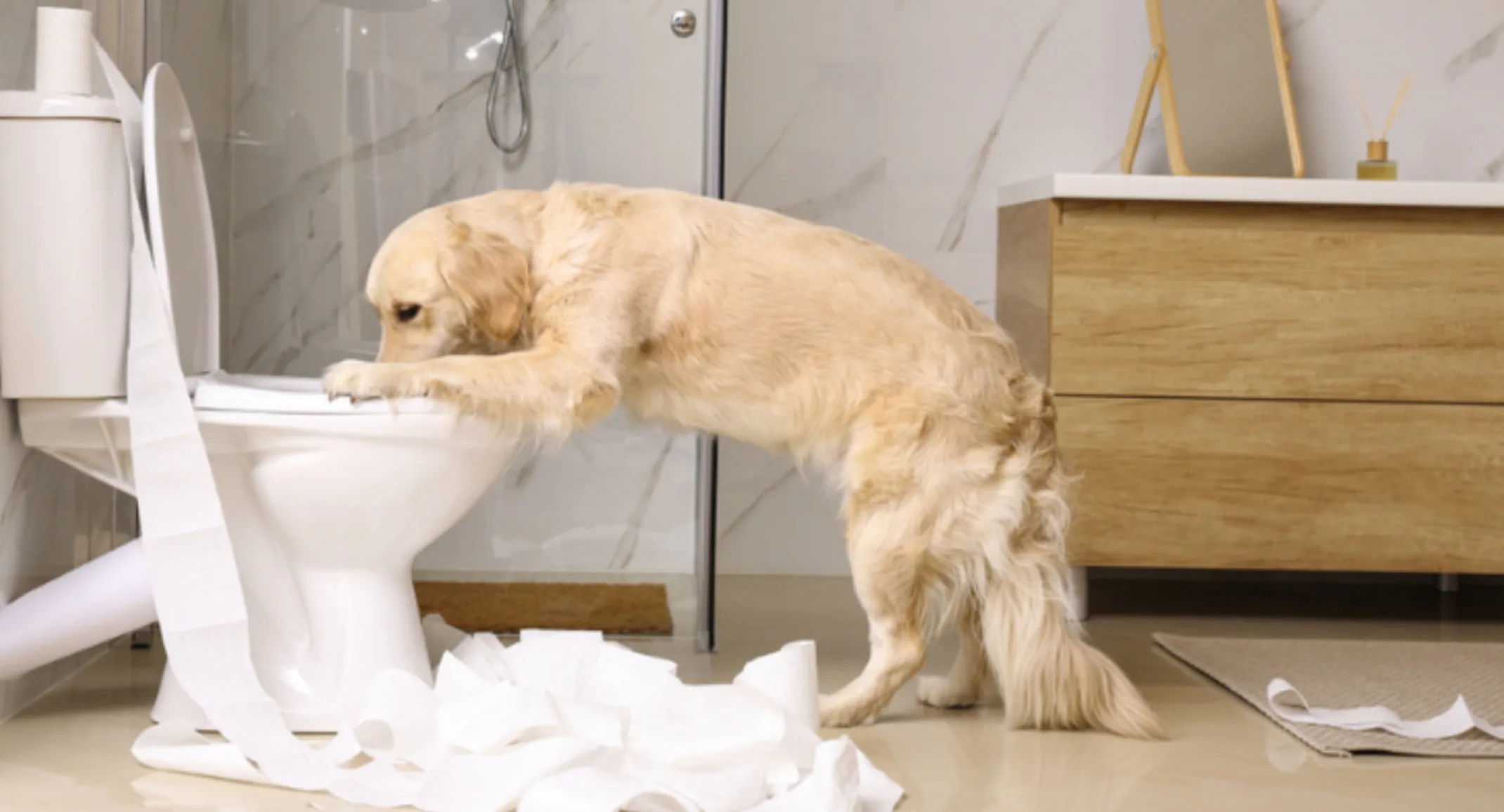Ask the Vet: Why Does My Dog Have Bad Breath?
Ask The Vet

Most dog owners love a good hug or lick from their furry friends. As much as we love our dogs, their breath can often get in the way of our bonding. The notorious “doggie breath” can be caused my many things other than just not brushing their teeth. It should never be accepted as normal.
Our vets explore this question or “why do dogs have bad breath?’ and its answer below.
Why Do Dogs Have Bad Breath?
Most dogs don’t get their teeth brushed regularly and their affinity for licking random undesirable things, such as their own bottoms, can definitely result in the production of a foul smell.
For most dogs with bad breath, a buildup of plaque, bacteria and tartar is the root cause. Many dogs don’t get their teeth brushed regularly and their affinity for licking random undesirable things, such as their own bottoms, can definitely result in the production of a foul smell.
Normal bacterial build up in their mouth especially tooth surfaces. This combined with food particles lodged in the teeth result in the production of an odor. As with humans teeth, which aren’t cleaned regularly, will build up tartar. This results in local bacterial infections along the tooth and its gum line. If allowed to exist for an extended period of time, these infections can cause damage to the tooth itself.
Periodontal disease is an infection of the the tissues which hold teeth in place. It has been noted that in dogs with no regular dental maintenance, 80% will have some degree of periodontal disease by 3 years of age. Periodontal disease can advance in severity until eventually, the tissues holding the tooth in place are so diseased that they can no longer securely hold the tooth and the dog then develops and abscessed tooth and eventually the tooth will need to be removed or it may fall out on its own. An abscessed tooth is a very painful condition. In addition to the pain it causes, the bacterial growth around the infected tooth can get into the dog’s bloodstream and travel to other organs such as the heart and kidneys resulting in the possibility of infections at those locations as well.
Aside from local bacterial build up, food particles, plaque and tartar, another possible cause of bad breath originating in the mouth can be the presence of a mass or tumor within the mouth. Whether cancerous or not, the mass can cause local inflammation and infection of the tissues in the mouth.
Sometimes, a foreign object, such as a stick or small toy can become lodged in a dog’s mouth. As with a mass or tumor, the foreign object can result in local inflammation and infection of an area of a dog’s mouth. If you’ve ever gotten something small like a popcorn husk caught in your tooth, you know how irritating and painful this can be!
In addition to the subjects we have covered so far, there are many systemic causes of bad breath in dogs which do not originate in the mouth.
What Underlying Health Issues Are Associated With Bad Breath In Dogs?
Bad breath may be a sign of certain systemic illnesses in dogs — for example:
Diabetes mellitus or “sugar diabetes” can cause a dog’s breath to change its’ smell, especially when the DM is not well controlled. A body in an uncontrolled diabetic state will often produce ketones such as acetone which as anyone who has ever used nail polish remover will tell you smells quite strong.
Kidney disease can result in a change in a dog’s breath. This is due to the toxic substances normally produced by the body and eliminated by the kidneys building up in the bloodstream. These toxins can result in a bad odor. Dogs with kidney disease can also become dehydrated and this lack of normal body fluid balance can show itself in a poor odor when you dog breathes.
Liver disease can result in a bad odor when your dog breathes as well. As with the kidneys, the liver has a significant role to play in cleansing the body of toxic byproducts normally produced during regular metabolic functions. If the liver is no longer able to do its’ job, those toxins can build up in the bloodstream resulting in a possible change to your dog’s breath.
Other metabolic changes, for example simple dehydration or the presence of a cancerous disease somewhere in the body, can result in changes to the bloodstream and gas exchange in the lung tissue. At times, a change in a dog’s mouth odor can be a sign of a bigger problem.
What Additional Symptoms Should You Be On The Lookout For?
This depends on the cause of the bad breath. However, if you notice bad breath in conjunction with increased thirst, pawing at the mouth, excess salivation, teeth chattering, a reluctance to eat, or eating on just one side of the mouth, contact your veterinarian.
What Should You Do If You’re Concerned About Bad Breath In Your Dog?
Any change in breath or eating/drinking behavior should be investigated by a veterinarian.
In many instances, bad breath is a sign of tartar buildup, in which case you can certainly begin brushing your dog’s teeth regularly. There are many different types of dog tooth brushes to choose from. In addition, it is vital to use a toothpaste made specifically for dogs. Human toothpaste is not safe to use in pets and can cause significant health problems.
Regular dog dental cleaning appointments, maybe yearly, in which your dog’s teeth are professionally cleaning in the same way has a human has their teeth cleaned are vital to maintaining good oral health. Your veterinarian can walk you through the process which will need to be done under anesthesia and answer any questions you have. Every dog is different and will need to be evaluated as an individual.
Make a regular appointment at Sunset Veterinary Clinic today. We will be happy to help you get to the bottom of your “doggie breath” causes and find a solution which will help you keep your relationship and tight bond with your dog secure and stink free!
